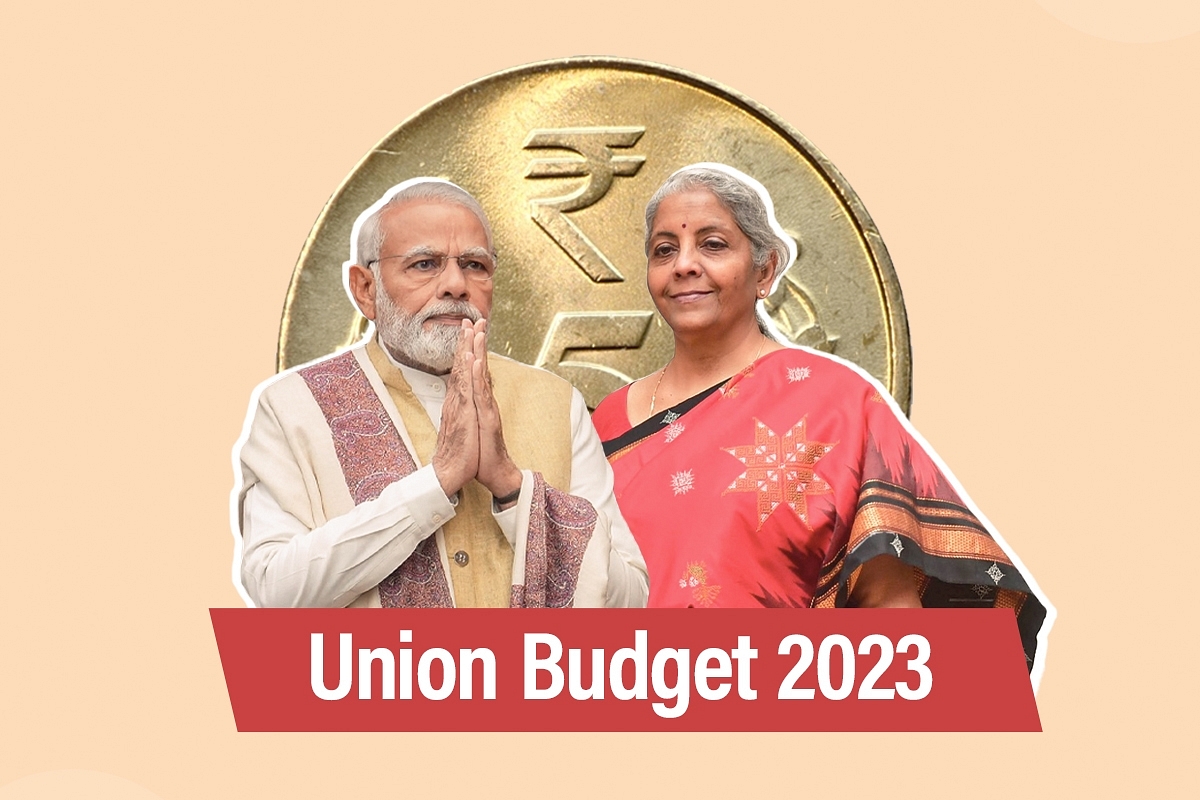Economy
A Feel-Good Budget For An Uncertain 2023-24
- The Finance Minister is essentially insulating India from the vagaries of the global slowdown by boosting domestic investment and consumption.

Prime Minister Narendra Modi and Finance Minister Nirmala Sitharaman.
Five significant signals are being sent in Nirmala Sitharaman’s fifth Union Budget.
With three of her earlier ones impacted negatively by Covid and the Russia-Ukraine war, this one promises to deliver in spades, unless the world spirals into something terrible in terms of a serious recession and/or a wider war.
The first, and most significant, thrust of the 2023-24 budget is the invitation to ordinary taxpayers to think beyond tax deductions.
She is being incentivised to move to a clean and simple regime that has fewer tax breaks, but which will be much easier to comply with.
The new tax regime, introduced two years ago, is being made the default one, which means you have to consciously choose the older regime if you fancy some specific deductions.
In the new regime, one does not pay any tax for incomes upto Rs 7 lakh per annum, which is a sharp uptick from the Rs 5 lakh tax-free level.
Tax savings for anyone earning up to Rs 15 lakh will be 20-25 per cent of earlier levels.
Even at the highest supertax slabs, the surcharge has been cut, and the top tax rate for high income ranges are down from 42.74 per cent to 39 per cent.
The second signal, which is a corollary of the first, is that businesses like insurance and mutual funds built purely on the USP of tax savings will now find it tougher to sell their products.
But looked at another way, it implies that misselling will also fall.
People will buy life or medical insurance or invest in a pension product only if they really think they need one.
Term insurance products may score over high premium or unit-linked insurance policies, which would be a good outcome.
A third highlight, which is actually a continuing trend, is another massive outlay on capital expenditure — a 33 per cent jump over 2022-23 to Rs 10 lakh crore.
Overall, the budget’s total capex has now reached 4.5 per cent of GDP, which implies that the government wants to induce the private sector to start investing in expansion, and ordinary folks to start spending as the incomes resulting from these capex spends trickle down to citizens.
The bet is that growth will create jobs and incomes, which, in turn, will reinforce consumption and growth.
The Finance Minister is essentially insulating India from the vagaries of the global slowdown by boosting domestic investment and consumption.
Fourth, it sometimes helps if the government does not do too much reform at one go.
The widely expected reform of the capital gains tax regime did not materialise, which, given the general uncertainties shrouding global economic outlook, was probably sensible.
The only capital gains surprise was the lowering of the exemption limit on capital gains from the sale of residential houses under sections 54 and 54F to Rs 10 crore.
The implication is only for the sale of luxury homes, which is where the capital gains would normally have been invested to avoid tax.
Fifth, there is not much kite-flying in these budget numbers.
The nominal GDP growth is assumed to be 10.5 per cent, which, if we presume 4-4.5 per cent inflation, implies at least 6 per cent GDP growth.
The government’s borrowing programme is also modest, at just over Rs 15.4 lakh crore.
Disinvestment targets, usually missed in most years, are a believable Rs 51,000 crore.
Tax receipts are expected to grow by 12 per cent, again not significantly higher than nominal growth.
The only figure that may raise eyebrows is the relatively low outlay for the MGNREGA jobs programme at Rs 60,000 crore, which is down from Rs 89,400 crore in 2022-23.
The bet here is that normal jobs growth and rural revival will reduce demand for artificial job safety nets.
Last, you should ignore the market volatility today. After soaring, it crashed, and then corrected again towards the end. The fall is related to short-selling in Adani shares, and unrelated to the budget.
Introducing ElectionsHQ + 50 Ground Reports Project
The 2024 elections might seem easy to guess, but there are some important questions that shouldn't be missed.
Do freebies still sway voters? Do people prioritise infrastructure when voting? How will Punjab vote?
The answers to these questions provide great insights into where we, as a country, are headed in the years to come.
Swarajya is starting a project with an aim to do 50 solid ground stories and a smart commentary service on WhatsApp, a one-of-a-kind. We'd love your support during this election season.
Click below to contribute.
Latest